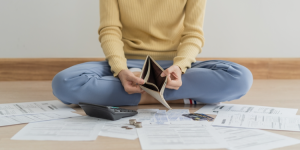
Lockdown has allowed many households around the world to save money, but for others, the risk of being fired and having no revenue at all has become a serious issue. With the current economic downturn and the fragility of the global labour market, budgeting is a must today more than ever. Here are some tips to help you manage your finances after lockdown as an expat.
List your priorities
As an expat, especially if you have children, you might be having a list of monthly expenses, including food, rent, water, electricity and heating bills, international school fees, expat health insurance, etc. First of all, list your priorities. Of course, there are things you cannot compromise on but think about the different ways in which you can reduce your monthly bills. For example, turn off the air conditioner or the lights when you are not using them, avoiding using the heater when it is not necessary, etc. Keep in mind that there will be inevitable changes in your lifestyle and expenses and that this could last for some time.
Live like a local
The coronavirus pandemic brought many countries to close their borders until further notice, and this has a significant impact on imports as a whole. Therefore, expect the prices of imported foodstuff and other products to go up in the coming weeks if it's not already the case. How to cope with the rising cost of living with a salary cut? A simple solution is to live like a local. Buy local produce and foodstuff. Prefer smaller grocery shops to supermarkets where prices are generally higher. Also, you might be able to bargain. Find ways of preserving food, whether raw or cooked, to avoid wastage.
Cancel your non-essential subscriptions
If you like sports and fitness, you are probably waiting for the gym to open. But if you're running short of money, it would be wise to cancel your non-essential club and gym subscriptions. You can still keep fit by training at home or by taking a walk around the neighbourhood and jogging at the nearby park. Think about any other unnecessary subscriptions that you might have, like Netflix, if looking for a new job is going to be your next priority. If you had planned holiday before the lockdown, see whether you can request for a refund following cancellation. Often, they will offer discounts or vouchers.
Avoid unnecessary outings
The end of lockdown might look like the much-awaited moment to do all the things you have been deprived of for the past few weeks. However, it's wiser to plan ahead, even if your job is not at risk, rather than spending on unnecessary things. Given the current economic downturn, things are not likely to get back to normal so soon. So even if you haven't yet got the opportunity to explore your host country, be patient. In the long run, cutting down on things like dining out, take away meals, having a drink at the bar, shopping for clothing, shoes and accessories, etc., will help you save money. In any case, there's very little chance that you'll be able to party with that little red dress you have been window shopping for anytime soon.
Request a payment moratorium
If you have been laid off due to the coronavirus pandemic, or if you're facing a salary cut, try not to worry. There are alternatives, like requesting a payment moratorium from your landlord, or even a temporary reduction on your monthly land. In case your landlord doesn't understand your financial situation, see whether you are eligible for a loan so that you don't run out of money. If you already have a mortgage or other forms of credit and are unable to repay, for the time being, make sure to inform them. You can also check with local authorities or with your embassy whether you might be eligible for any form of financial help until you find a new job. And when you get help, make sure to spend the money wisely with a long term plan.



















